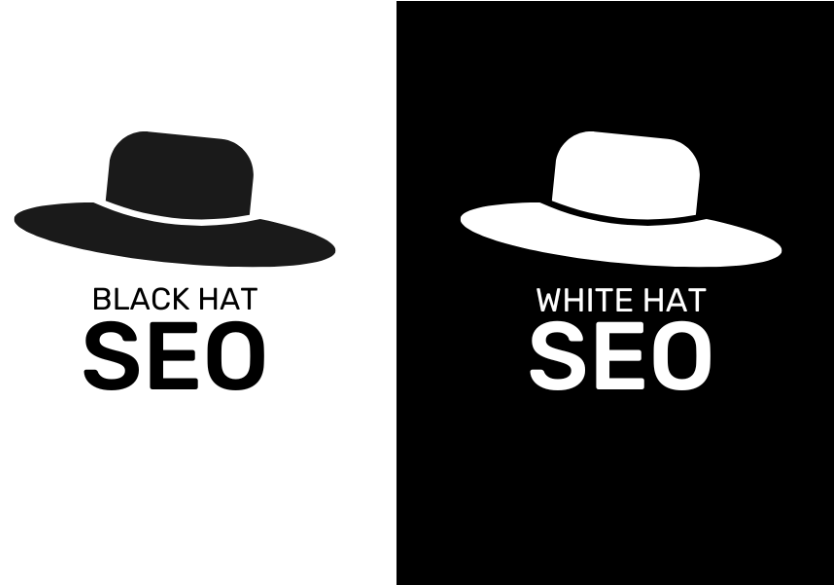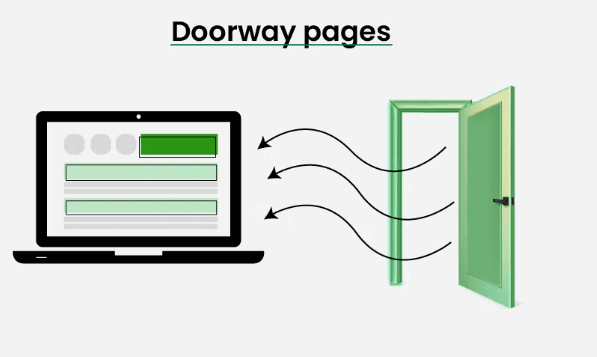Guides
Navigating the world of SEO can often feel like walking a fine line between right and wrong. At its core, white hat SEO represents ethical, long-term strategies that prioritize quality content and user experience, aligning with search engine guidelines. In contrast, black hat SEO takes a shortcut approach, using deceptive tactics to manipulate rankings, often risking penalties and damaging reputations. Understanding the difference between these two approaches is crucial for businesses looking to build a sustainable online presence that genuinely connects with their audience. Let’s explore what sets these strategies apart and why choosing the right path matters for your brand’s success.


The terms ‘white hat’ and ‘black hat’ are common in SEO. Simply put, white hat SEO refers to good practices recommended by search engines, while black hat SEO involves bad practices that break the rules.
Google’s rulebook, known as “Google Search Essentials” (formerly “Google Webmaster Guidelines” until October 2022), outlines these rules. Following the recommendations in Search Essentials is considered white hat SEO. Black hat SEO, on the other hand, goes against these rules and tries to manipulate search engines for quick gains.
Gary Illyes, a senior analyst at Google, summarized this well in an interview with Bruce Clay: “Bruce Clay: Is there something else that we should chiefly be paying attention to other than the Webmaster Guidelines? Gary Illyes: There’s nothing more that you really want to focus on.
Google has always been clear that it can penalize any website that violates its rules. If your site breaks the Spam Guidelines, Google Policies, or Search Essentials recommendations, you risk penalties (manual actions) or algorithmic devaluation (where your content’s rankings are suppressed or other sites are promoted over yours).
Moreover, Google can penalize you even if you don’t break the explicit guidelines but violate the spirit of them. Until October 2022, the guidelines overview included: “These quality guidelines cover the most common forms of deceptive or manipulative behavior, but Google may respond negatively to other misleading practices not listed here. Google approves of it. Website owners who uphold the spirit of the basic principles will provide a much better user experience and subsequently enjoy better ranking than those who spend their time looking for loopholes to exploit.”
Therefore, black hat SEO is not only about breaking the specific rules but also about violating the spirit of the guidelines.
Google provides extensive information on the differences between black hat and white hat SEO. Some key areas on their site include:
We recommend familiarizing yourself with the documents and practices in these areas. Ignoring them is the fastest way to see your website demoted in Google search results. Conversely, adhering to them gives you the best chance for sustainable performance (though Google notes that no performance is truly sustainable, as search dynamics change and all websites will experience fluctuations over time).
Additionally, it’s wise to review previous versions of the Guidelines. Google continually updates these to address current issues and reflect the latest algorithm changes. For example, elements that were difficult for Google to crawl in 2016 may not pose the same challenges today. Practices that were against the guidelines then might not be now, and vice versa.
However, this doesn’t mean that past practices now become good practice. Generally, Google doesn’t change its stance on black hat SEO practices unless there’s a compelling reason. So, if something was not recommended a decade ago, it’s probably still best to avoid it, even if it’s no longer explicitly mentioned in the guidelines.
Black hat SEO can yield short-term results, temporarily boosting a website’s rankings through illicit practices. However, good rankings achieved this way should not be mistaken for Google endorsing or approving your content. Web spam that evades detection is still web spam, and it will eventually be caught and devalued by Google.
If Google’s system were foolproof and caught web spam instantly, search results would be of even higher quality. The fact that Google continuously releases spam-based algorithm updates and maintains a large quality team shows that spam can still slip through the net.
On the other hand, white hat techniques focus on creating great website experiences through excellent UX, valuable content, and quality backlinks. These methods are less likely to be penalized and should lead to sustained, long-term improvements in rankings and site visibility.
To fully understand the value of proper white hat SEO methods, it’s essential to first identify what constitutes black hat SEO.
Black hat SEO involves deceptive practices aimed at tricking search engines into ranking a website higher than it deserves for specific search queries. Unlike white hat SEO, which enhances the relevance and quality of a website genuinely, black hat SEO uses manipulation and trickery.
This element of “trickery” means that black hat sites that rank high in search results might be useless to visitors. Google and other search engines do not want this and actively work to discourage and punish black hat methods.
Search engines dislike black hat SEO not just for its dishonesty but because it often results in a poor user experience. While white hat SEO aims to benefit both site visitors and search engines, black hat SEO targets search engines alone, often neglecting users entirely.
Despite Google’s stringent stance against black hat SEO, some individuals and agencies still use these methods, hoping to avoid detection. If you want to maintain the long-term visibility of your website, it’s best to avoid these practices and those who use them.
Keyword stuffing involves overusing certain keywords to manipulate search rankings. This can result in poorly written content that doesn’t make sense. For example, a keyword-stuffed title tag might look like this: “White Hat and Black Hat SEO | SEO White Hat | SEO Black Hat | SEO.” This approach focuses on search engines rather than readability or user experience.
Some black hat practitioners hide content on a page using tags, making it invisible to users but visible to search engines. This often involves placing keywords in a page’s code. While using relevant keywords is recommended, hiding content is not.
Paying for links purely to boost search rankings is considered manipulative by Google. The worst offenders are links from spammy directories that exist solely for selling links. Instead, focus on gaining informative, insightful PR-style links that provide value to readers.
Doorway pages are created to rank for specific, similar search queries but lead users to intermediate pages that are not as useful as the final destination. These can include multiple websites with slight variations in URLs or pages targeting specific regions that funnel users to one page. Thin content, which offers little unique value, is also frowned upon.
Overusing keywords can harm readability and user experience.
Hiding content to manipulate rankings is deceptive and discouraged.
Paying for links from low-quality directories can lead to penalties.
These practices lead to poor user experiences and should be avoided.
At Tomatotree Digital in Kerala, we emphasize ethical SEO practices to ensure your website remains user-friendly and maintains its visibility in search results. By avoiding black hat techniques and focusing on white hat methods, you can achieve long-term success and provide a better experience for your visitors.

Google continuously improves its methods for catching web spam through several approaches:
Some of the most well-known algorithms that target web spam include:
Besides targeting spam, Google also releases updates that promote high-quality content. These updates aim to push down low-quality content by highlighting well-crafted, valuable information. A notable example is the 2018 Google Brackets update.
Google releases thousands of algorithm updates every year, many of which are core updates specifically designed to root out web spam and black hat SEO practices.
In addition to automated systems, Google has a dedicated team of human quality reviewers. These reviewers actively search for web spam and issue manual penalties.
White hat SEO involves adhering to search engine guidelines and working with their algorithms to improve site rankings. Unlike black hat methods, white hat SEO focuses on enhancing the user experience and providing valuable content.
High-quality, well-researched, and informative content is crucial. Following the principles of E-E-A-T (Experience, Expertise, Authority, Trust) can help ensure your content is valuable. In specific sectors like finance or medicine, adhering to Google’s YMYL (Your Money or Your Life) guidelines is essential
Using keywords strategically and naturally within your content is important. This helps search engines understand the relevance of your pages without resorting to keyword stuffing
A functional, user-friendly website with clear navigation, internal linking, and optimized code can improve your search rankings. It’s also important to make your site easy for Google to crawl by optimizing your crawl budget and preventing keyword cannibalization.
A functional, user-friendly website with clear navigation, internal linking, and optimized code can improve your search rankings. It’s also important to make your site easy for Google to crawl by optimizing your crawl budget and preventing keyword cannibalization.
Building links through high-quality PR campaigns and creating content that others naturally want to link to is a sustainable and effective strategy.
White hat SEO is always the better choice. It results in a well-designed website, avoids penalties, and leads to sustainable, long-term success. While it requires more effort and creativity, the rewards are worth it.
At Tomatotree Digital in Kerala, we believe in ethical SEO practices. Sticking to white hat methods ensures not only better search rankings but also a superior user experience and long-term visibility. Avoid black hat techniques to maintain a strong, reputable online presence.
The constant battle between search engines and those trying to manipulate them rages on. In SEO, this translates to the age-old debate between white hat and black hat techniques. While the core principles remain the same, staying ahead in 2024 requires understanding the evolving landscape of SEO and Google’s ever-more-sophisticated spam detection methods.
Google’s Search Essentials (formerly Webmaster Guidelines) serve as the rulebook for SEO. A recent update in Search Engine Land article, “Google Search Essentials Updated to Focus on User-Centric Content”, June 10, 2024 places even greater emphasis on user-centric content. This means prioritizing well-researched, informative content that genuinely addresses user needs.
While AI tools like content generators can be tempting for black hat practitioners, Google remains wary. A BBC Technology article, “AI-written content: Why Google is taking a cautious approach”, April 12, 2024 highlights Google’s concerns about potential inaccuracies and the importance of human oversight. White hat SEOs should leverage AI for assistance, but always prioritize fact-checking and quality control.
Black hat link-building tactics like buying links from low-quality directories are no longer viable. As reported in The Drum article, “The Death of the Link? Why Quality Content is King in 2024”, February 14, 2024 , Google’s algorithms are adept at identifying and penalizing manipulative link-building schemes. White hat SEOs should focus on creating high-quality content that naturally attracts backlinks from reputable sources.
By following these guidelines and staying updated on the latest trends, you can ensure your website achieves sustainable success in the ever-changing world of SEO. Remember, white hat SEO is an investment in the long-term health and visibility of your website, while black hat tactics offer only fleeting gains with the risk of severe penalties.
Why settle for average when you can have the best? Tomatotree Digital, the leading SEO agency in Kerala, offers customized strategies tailored to your brand. Take the first step toward online success today—contact us now!

Never settle for anything less than the best! Hire the top SEO experts from the Best SEO Company in Kerala and benefit from the customized Search Engine Optimization strategies designed exclusively for your brand.

India

United Kingdom
Newsletter
Never settle for anything less than the best!
Other Links
WhatsApp us